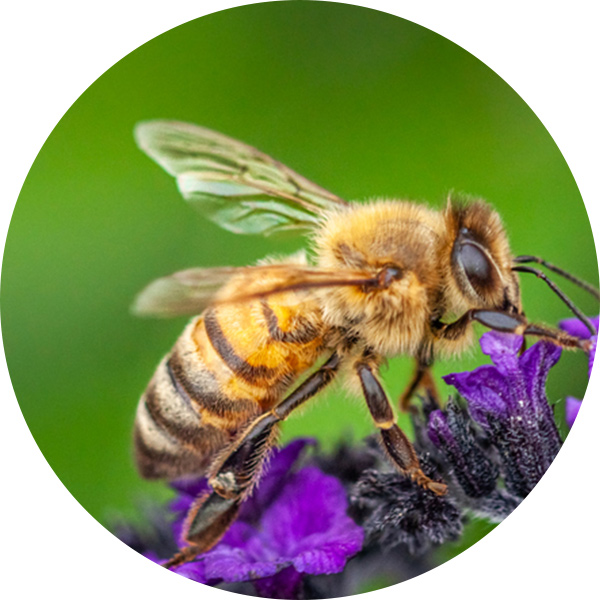
Wasp Facts & Information
Wasps are flying insects that are known for their distinct body shape and vibrant colors. They are equipped with stingers and can be aggressive when defending their nests, making them a potential nuisance and safety concern for humans.
Risks of Wasps
Sting Risk
The primary concern with a wasp infestation is the increased risk of being stung. Wasps are equipped with stingers and can sting multiple times. For individuals who are allergic to wasp venom, a sting can result in severe allergic reactions, including anaphylaxis, which can be life-threatening. Even for individuals without allergies, wasp stings can be painful and cause discomfort.
Aggressive Behavior
Some wasp species, such as yellowjackets and hornets, can exhibit aggressive behaviors when their nests are disturbed or they feel threatened. This aggression can pose a risk to humans, particularly if the infestation is near high-traffic areas or places where people gather, such as homes, gardens, or outdoor recreational spaces. Aggressive wasps can cause panic and anxiety, leading to potential accidents or injuries.
Structural Damage
Certain species of wasps, like mud daubers, can cause structural damage by constructing their nests in or around buildings. They may use mud or chewed wood fibers to build their nests, which can stain or mar surfaces and create unsightly blemishes. Additionally, wasps may chew through materials like wood, insulation, or electrical wiring when creating nest entrances or expanding their nests, potentially leading to further structural issues or safety hazards.
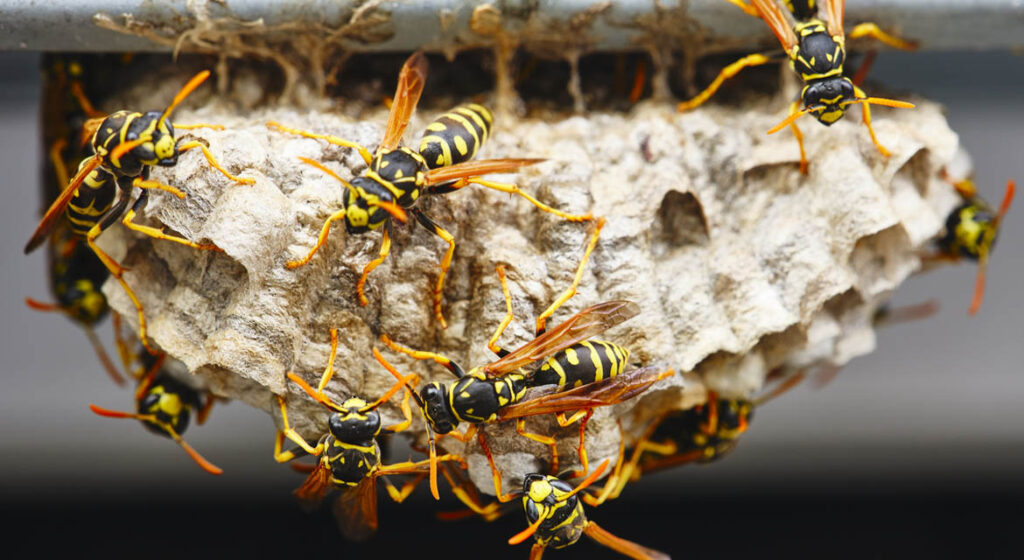
Truly Nolen GUARANTEE
If you’re not completely satisfied, you’ll get a full refund on your most recent service with our 100% money back guarantee.
Common Species of Wasps
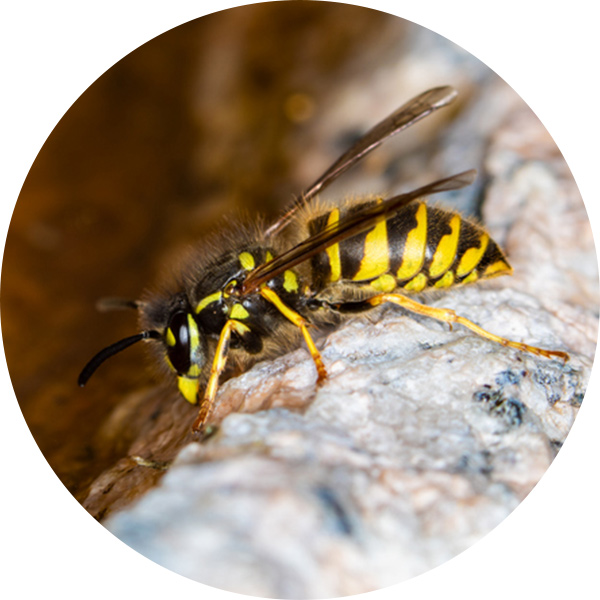
Yellowjackets
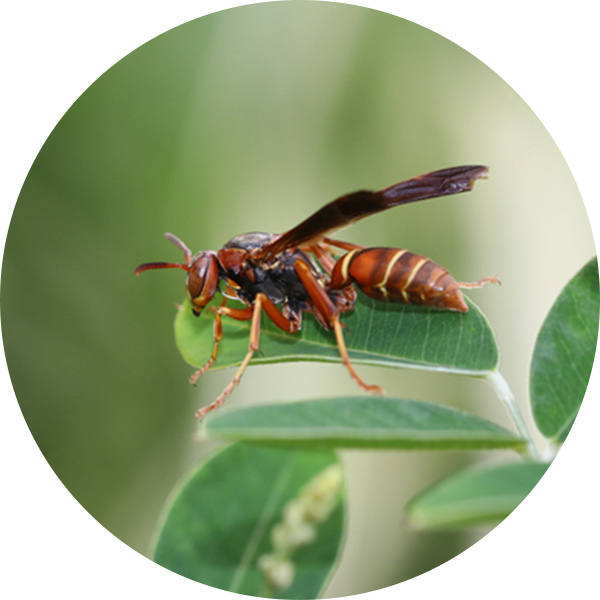
Paper Wasps
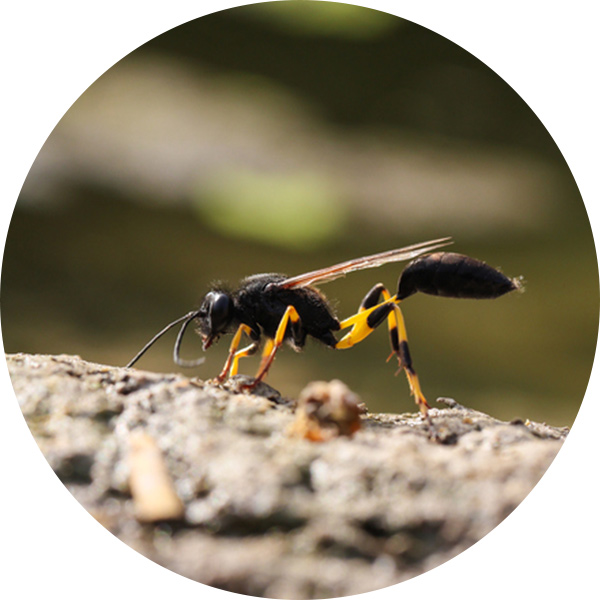
Mud Daubers
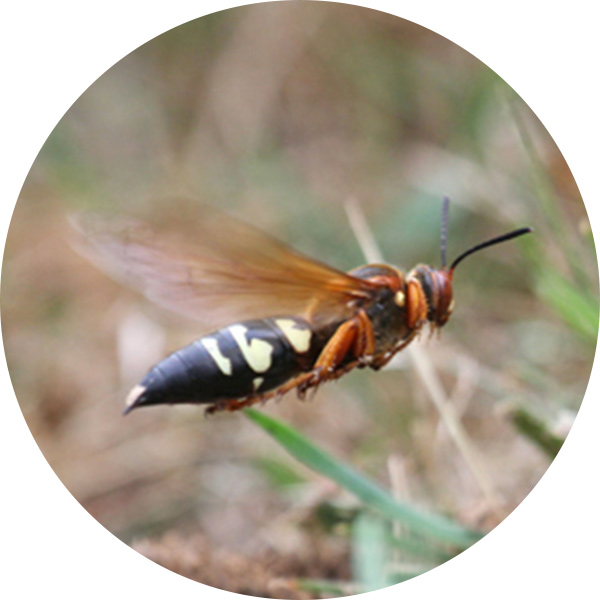
Cicada Killers
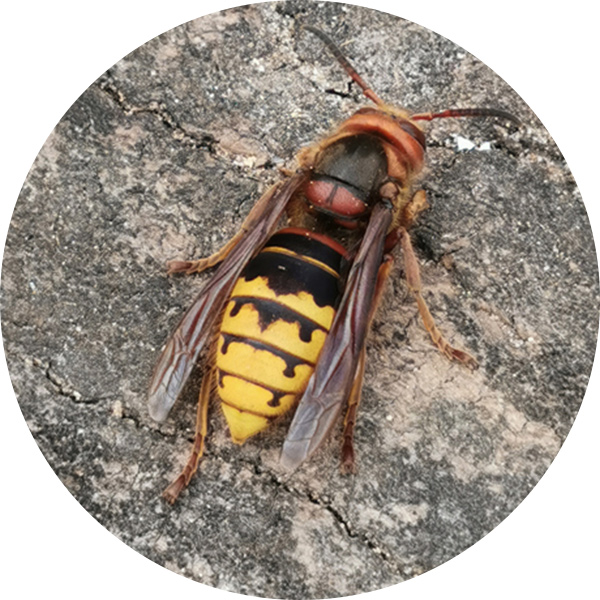
Hornets
How To Identify Bees
Wasps can be identified by their slender body shape, distinctive waist, and prominent stingers. They have smooth, shiny exoskeletons and often display vibrant colors such as yellow, black, or metallic shades. Their wings are folded lengthwise when at rest, and they have two pairs of wings.
Wasp Appearance
Wasps have a slender, elongated body with a narrow waist and two pairs of wings. They come in a variety of colors, including black, yellow, and brown, and many species have distinctive patterns or markings. They have long, slender legs and large, compound eyes.
Wasp Habitat
Wasps can be found in almost every part of the world, and there are many different species. They typically build their nests in protected areas, such as under the eaves of a house, in a tree, or in a hole in the ground. Some species of wasps are solitary and do not build nests.
Wasp Diet
Wasps are predators and feed on other insects, such as caterpillars and flies. Some species also feed on nectar and other sweet substances.
Wasp Behavior
Wasps are social insects that live in colonies. Each colony has a queen wasp, who is responsible for laying eggs, and a number of worker wasps, who gather food and care for the young. Wasps are known for their aggressive behavior and can sting multiple times if they feel threatened.
Wasp Reproduction
Queen wasps lay eggs, which hatch into larvae. The larvae are fed by the worker wasps and develop into pupae, before emerging as adult wasps. In some species, the queen can control the sex of the eggs she lays, while in others, it is determined by the type of food the larvae are fed.
Wasp Prevention
If you have a problem with wasps on your property, it is best to contact a professional pest control company. Attempting to remove a wasp nest yourself can be dangerous and can result in multiple stings. To prevent attracting wasps to your property, avoid leaving sugary drinks or food outside, and seal up any openings in your home or building where wasps might be able to enter.
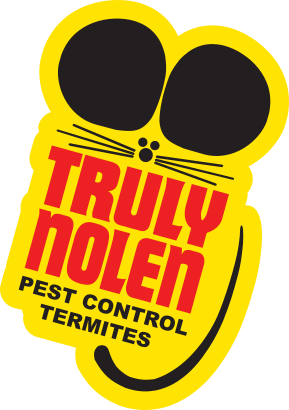
$50 Off Year Round Pest Control
Truly Nolen is a family-owned company with 85 years of experience providing the best pest control. If you’re not completely satisfied, you’ll get a full refund on your most recent service with our 100% money back guarantee.
The Truly Nolen Approach
Environmentally Conscious
We work to minimize our impact on the environment by using naturally occurring materials whenever possible.
Pet Friendly
Truly Nolen uses an Integrated Pest Management (IPM) approach designed with your pets in mind.
100% Money Back Guarantee
If you’re not completely satisfied, you’ll receive a full refund on your most recent service.
How Truly Nolen Gets Rid of Wasps
Truly Nolen offers professional wasp control services that prioritize the safety of both humans and the environment. Their trained technicians conduct a thorough inspection to identify wasp nests and assess the extent of the infestation. Depending on the situation, they may employ various methods, including nest removal, treatment with insecticides, and preventive measures to deter wasps from returning. The approach taken by Truly Nolen aims to effectively eliminate wasp colonies while minimizing the risks and ensuring the well-being of both clients and the surrounding ecosystem.
Frequently Asked Questions
Are wasps dangerous?
Wasps can be aggressive when their nests are threatened, and they are capable of stinging multiple times. For individuals with allergies to wasp stings, the reactions can be severe. It’s important to exercise caution and seek professional help when dealing with wasp infestations.
How do I differentiate between wasps and bees?
Wasps have slender bodies, a more defined waist, and vibrant colors. They often have smooth, shiny exoskeletons, and their wings fold lengthwise when at rest. Unlike bees, wasps can sting multiple times. Learn More!
What does a wasp nest look like?
Wasp nests can vary in appearance depending on the species. Common wasp nests are typically made of a papery substance and have a honeycomb-like structure. They are often found in protected areas such as eaves, tree branches, or underground burrows.
Can I remove a wasp nest on my own?
Removing a wasp nest can be dangerous and is best left to trained professionals. Disturbing a wasp nest without proper knowledge and equipment can result in multiple stings and potential health risks. Contacting a professional pest control service is advisable for safe and effective removal. Learn More!
How can I prevent wasp infestations?
To minimize the risk of wasp infestations, it’s important to seal any openings or cracks in your property, especially near potential nesting sites. Keep food and garbage containers tightly sealed, avoid leaving sweet-smelling substances exposed, and consider installing wasp traps or decoys to deter them from nesting in your vicinity.

